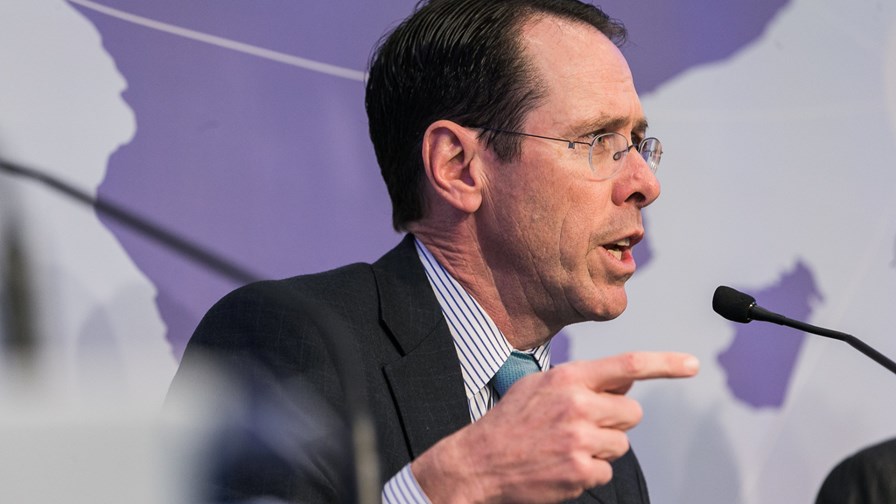
© Flickr/cc-licence/WEF
- US-based Business Roundtable group updates its beliefs
- Shareholder value is no longer everything
- 181 CEOs pledge to support all stakeholders
- Actual action is a little less forthcoming
The Business Roundtable is a group of CEOs from America’s leading companies, collectively representing 15 million employees and more than $7 trillion in annual revenues. Founded in New York back in 1972, the research and advocacy group now counts 196 CEOs with JPMorgan CEO Jamie Dimon its chairman.
The group made the headlines yesterday when it announced a better way that corporations can and should operate today, rather than focus purely on shareholder value. It released a document on the Purpose of a Corporation that supports the group’s commitment to a broader set of stakeholders to encompass customers, employees, suppliers and communities.
“The American dream is alive, but fraying,” said Jamie Dimon. “Major employers are investing in their workers and communities because they know it is the only way to be successful over the long term. These modernised principles reflect the business community’s unwavering commitment to continue to push for an economy that serves all Americans.”
Amongst the group is AT&T Chairman and CEO Randall Stephenson, who was among 181 leaders to sign the statement and commit to furthering the efforts at AT&T. The telco supported the move by stating that it sees the idea of a “stakeholder” holistically, and rather grandiosely announcing that “our commitment to our employees, suppliers and communities is something we live each day through our values and mission to inspire human progress.” That and making money, of course.
“In a rapidly changing economy, it’s our goal at AT&T to invest in our people and communities to help create a future that better serves us all,” said Randall. “This new statement by the Business Roundtable ensures corporations across the country are committed to the same.”
This new statement, which moves away from shareholder primacy, is surprisingly brief, clocking in at just 302 words.
While each of the group’s individual companies has its own corporate agenda, the members says they share a fundamental commitment to all of their stakeholders, committing to:
- Delivering value to our customers
- Investing in our employees
- Dealing fairly and ethically with our suppliers
- Supporting the communities in which we work
- Generating long-term value for shareholders, who provide the capital that allows companies to invest, grow and innovate.
Whether or not this results in any meaningful difference is another matter, and how these commitments will be converted into action is unknown, as there are no further details nor a timeframe for action.
Of all the telecoms companies represented in the Business Roundtable group, AT&T is the only one to have issued its own statement and expanded on the principles.
Excluding five member companies who appear to be waiting on representation, there are eight members who have not signed up to the plan (at the time of writing). For the record, these are: Alcoa, Blackstone, GE, Johnson Controls, Kaiser Permanente, NextEra Energy, Parker Hannifin and State Farm.
The idea of shareholder primacy pretty much originated in the US back in the lusty decadent days of the free-wheeling 1980s and was committed to paper by the Business Roundtable in 1997. Although economists will no doubt go back further to Milton Friedman’s statement in 1970 that “the social responsibility of business is to increase its profits.” If you have ever wondered why traded businesses are so fixated on quarterly results than look no further.
One aspect of corporate management that is conspicuously missing from the list is CEO pay. The latest annual Equilar 100 study into CEO compensation continues to highlight the pay divide between CEOs and their workers. Since AT&T issued its own press release on the new report, we feel we should also add that fact that CEO Randall Stephenson ranked 7th on this year’s Equilar list with a compensation package of $25,600,312. Also worth noting that the median CEO pay ratio for the Equilar 100 was 254:1 – in other words, the top CEOs earn, on average, around 254 times the salary as that of their employees.
Perhaps the final word should go toDemocratic presidential hopeful Elizabeth Warren. In a statement via Twitter yesterday the Senator said:
A year ago, I called out CEOs and the Business Roundtable for their single-minded focus on maximizing shareholder value at the expense of workers. Looks like they finally got the memo. But without real action, their announcement is meaningless. https://t.co/x7BFpBKqwJ
— Elizabeth Warren (@ewarren) August 20, 2019
_
Email Newsletters
Sign up to receive TelecomTV's top news and videos, plus exclusive subscriber-only content direct to your inbox.
Subscribe